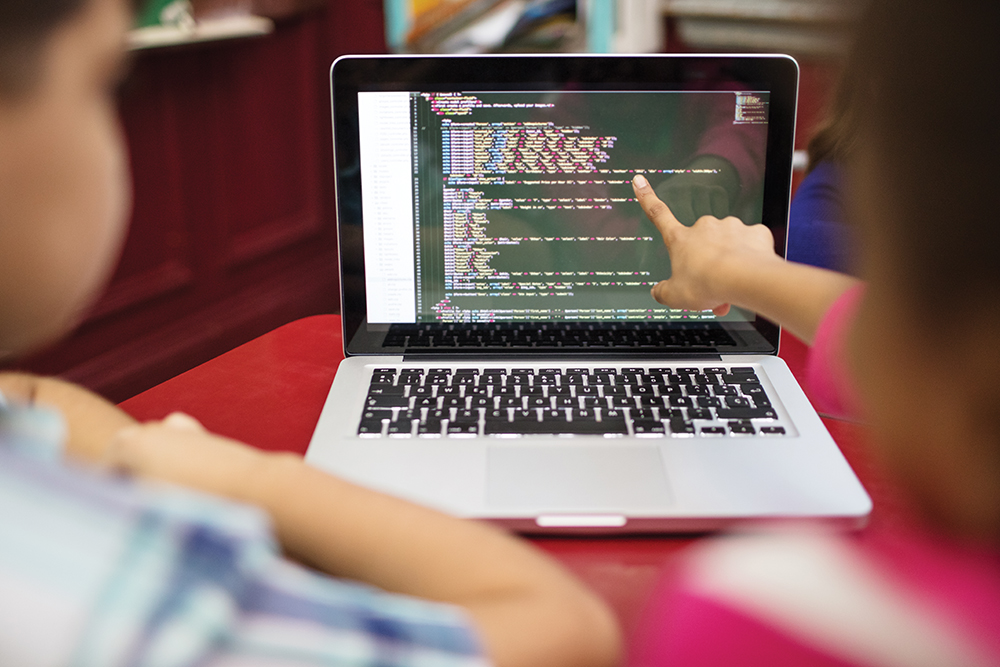We meet the local companies and clubs making computer programming child’s play
Five years ago, you’d never have heard of coding camps. Today, they’re a big thing in our area and getting bigger all the time. They’ve sprung up in response to the growing interest in what’s under the bonnet of today’s computers, helped along by a rethink of the IT curriculum in schools. This has resulted in even the tiniest of reception tots getting to grips with programming – often with highly impressive results.
Given the success of our area’s high tech, highly successful businesses, it’s not hard to see just where coding can get you. But as the coding camp organisers stress, learning to programme is just the start.
What children also get is the chance to create, project manage, work as a team and experience success, failure and all the associated highs and lows that come with it.
“What we’re trying to do is not be some kind of boot camp but be something that really empowers kids with all the different kinds of technology to help them to communicate and collaborate and solve problems,” says Jill Hodges, a self-described serial entrepreneur who set up Fire Tech Camps when she couldn’t find a suitable course for her two tech-mad kids. The camps cover everything from learning programming languages to designing video games or becoming a YouTube creator, taking in communications and collaboration along the way. “It’s not just about learning programming, it’s really about getting all the soft skills as well,” she says.
That’s not only highly empowering but provides a way of learning – in tiny classes – that schools sometimes just don’t have time for. What also helps is that the tutors are frequently young, bright and evangelical about coding – brilliant role models for their young pupils. At Cambridge Coding Academy, 13 to 18-year-olds are taught by researchers from top universities, Cambridge and Imperial among them, as well as computer science teachers.
“If it’s in the context of a game, they’re going to listen”
It doesn’t take long to see results. “From not knowing at all how to code, you can develop an online game after just one day,” says Dr. Chih-Chun Chen. “You then move on to create your own website, process images and code your own music.”
Many courses are aimed at complete beginners. Pete Neill, co-founder of Code Club, says that what makes the difference is the enthusiasm of Code Club learners (most aged seven to 12) coupled with the way that their enthusiastic teachers help them take quite complex mathematical concepts in their stride.
“Anything you want to teach them, if it’s in the context of a game, they’re going to listen. If you just drew a graph on the board and starting talking about Cartesian coordinates, you would have lost them instantly. But if you say OK, if we want to propel our fire ball from here to here… do we need a positive number or a negative number to move this way, they’re all listening and guessing because they’re super invested in making that happen.”
For parents with daughters the good news is that coding is in no danger of becoming a boys-only zone. Code Club says that, typically, its sessions have about 35 per cent of girls, with some achieving equal numbers of boys and girls (elsewhere between 15 and 40 per cent seems to be the norm). With Code Club working with girls’ schools to promote coding, expect the proportion of girls to keep growing.
Currently, coding camps are mainly offered as holiday courses in our area. But with growing numbers of families recognising that learning to code isn’t just about becoming brilliant in binary but providing an all-round learning experience, more weekend and after school sessions are likely to become available in the near future. Somewhere, an under-18 whizz-kid coding course alumnus is probably already creating an app to let you know exactly when.

